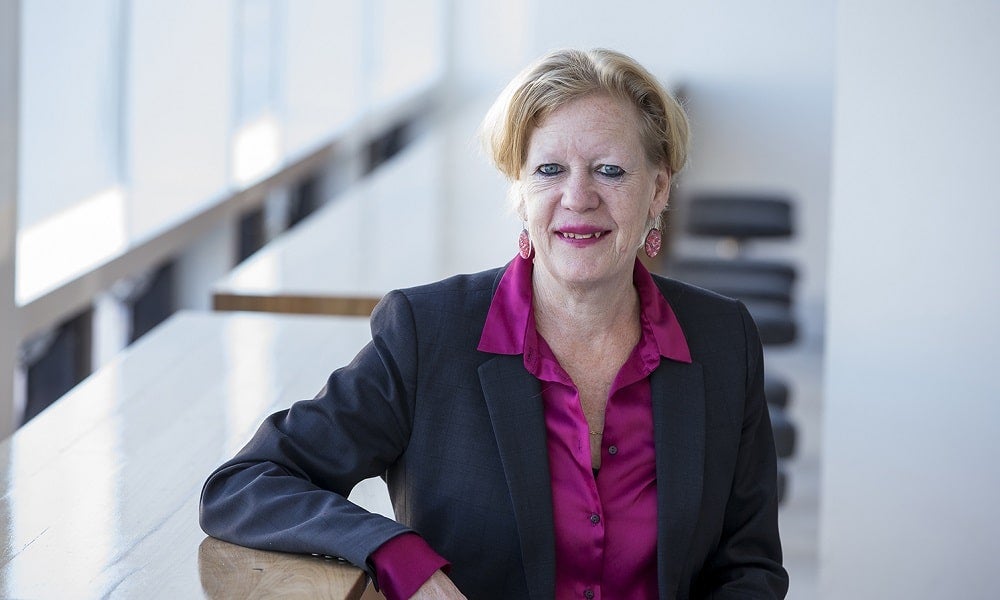How do you demonstrate enthusiasm in a job interview?
Is there such a thing as being too enthusiastic in a job interview, and how should hiring managers assess candidates on this?
Many employers often look for genuine enthusiasm when selecting candidates, with four out of ten saying they reject a candidate who shows no enthusiasm in an interview. So enthusiasm is critical to workplace success and can mean the difference between not getting a job and advancing your career. A job candidate who demonstrates this quality will have an advantage over a candidate who does not.
But there is a fine line between showing genuine enthusiasm and being too eager in a job interview. According to the findings of a new study, co-authored by UNSW Business School’s Professor Karin Sanders, a researcher in the School of Management and Governance, expressing ‘intense’ instead of ‘mild’ enthusiasm during an interview reduces applicants' chances of being perceived as a suitable fit for the job.
Why do employers value enthusiasm?
According to Prof. Sanders, expressing enthusiasm for a role generally signals your motivation for the job, which suggests it may show that you control emotions in stressful situations. She previous studies have shown that graduation certificates are no longer considered essential. Instead, employers increasingly value enthusiasm for the job, as well as a positive work attitude and willingness to learn when they recruit starters. But many job candidates might not be aware of the sheer importance of showing enthusiasm for the role they’re applying to.
But can you be too enthusiastic in an interview? Yes, if employers perceive your enthusiasm as not under control anymore, they judge it as unprofessional – which will likely lead to an unfavourable outcome. “Our research shows that there are differences in the intensity of enthusiasm and that too intense is less appreciated, but showing enthusiasm is helpful,” says Prof. Sanders.

In the study, Does emotional restraint or exuberance get you the job? How and when enthusiasm intensity is related to perceived job suitability, Prof. Sanders and co-authors analyse responses from almost 600 recruiters in China on how they rate job candidates on enthusiasm. And according to the authors, while the study is based on evidence from China, the results align with findings on emotional intensity in countries like the US and Netherlands.
Prof. Sanders explains: “Previous research fails to consider the consequences of the magnitude of enthusiasm in job interviews (also known as first expression effects). Such enthusiasm influences interviewers’ cognitive encoding processes that subsequently determine the interviewer's perceptions of the applicant’s job suitability.”
So, in contrast to mild enthusiasm, employers generally do not appreciate intense enthusiasm. “Higher intensity expressions can be perceived as extreme and unprofessional and do not always lead to favourable outcomes for applicants,” says Prof. Sanders.
But much of this also depends on the context and the specific job the applicant is applying for. Nevertheless, the results show that intense enthusiasm does not always decrease job suitability and can lead to a positive interview outcome in some circumstances (depending on the interviewer's characteristics). “We find that the interviewer's perceptions of decreased appropriateness explain the negative consequences of intense enthusiasm. In contrast, the positive consequences are driven by the interviewer's perceptions of the applicant's attraction to the organisation,” explains Prof. Sanders.
Read more: Are we seeing the Great Resignation – or the Great Exhaustion?
Why is enthusiasm a vital skill?
So by showing mild enthusiasm, a job applicant signals they are motivated for the job and in control of their emotions. On the other hand, by showing intense enthusiasm, applicants may show that they cannot stay in control in stressful or difficult situations.
These findings highlight the importance of nonverbal communication. “If nonverbal communication was not important, employers could choose by only screening the CV of candidates,” says Prof. Sanders. This suggests that the main reason to interview in the first place is to assess a candidate's suitability based on their nonverbal communication skills.
“Nonverbal communication is important in interviews and many conversations. This is why we have moved from phone calls to teams and Zoom meetings, although we are still missing many non-verbal communications compared to in-person communication,” she says.

How to properly convey enthusiasm in a job interview
So, what are some positive ways to express nonverbal communication? Aside from dressing appropriately, there are several ways to communicate without speaking. “Eye contact for a few seconds (but not too long). Have a smile on your face, nod when the panel is talking (to show you understand them and you listen),” says Prof. Sanders.
“Laughing also shows that you are relaxed but do not laugh too much (it signals that you are nervous), and wait for the panel members to laugh first. Have an open attitude, a good handshake, and look at the other person,” she says.
And what are the things to avoid? “Poor posture by leaning back (this shows a lack of enthusiasm) and crossing your arms can come across as either not interested in the discussion or as overly confident or arrogant,” explains Prof. Sanders. “I have seen many of these examples in interviews. It kills your motivation to hire such an applicant.”
Read more: How to successfully onboard new hires in the world of hybrid work
What are some other things job candidates can do to appear in control and excel in an interview? “Know the business (Google as much as possible on the organisation, such as annual reports etc.), know the members of the panel (spend an afternoon or so to know more about them, so you will not make a remark that is not appropriate for one of them), and be sure that the role is a good match for you,” explains Prof. Sanders.
For hiring managers to assess or measure a candidate’s ‘appropriateness’, it often comes down to a combination of ‘a good feeling’ and ‘ticking the boxes on many aspects'. “Hiring is difficult; therefore, organisations spend huge amounts of money on it,” says Prof. Sanders. This is where HR research plays an essential role in helping organisations hire suitable candidates.
Karin Sanders is a Professor in the School of Management and Governance at UNSW Business School. For more information about hiring and implementing sustainable HR practices, please contact Prof. Sanders directly.

